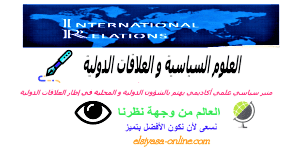 |
| استراتيجية الطاقات المتجددة في المغرب 2009- 2020: دراسة تحليلية |
رجاء بن ربيعة / عبد اللطيف بوروبي
تستغل "دولة المغرب طاقاتها المتجددة" من خلال صياغة استراتيجية للطاقات المتجددة لمدة 10 سنوات تقريبا (للفترة 2009 -2020). ليعالج هذا المقال كيفية تحقيق الأهداف المسطرة لهذه الاستراتيجية الطاقوية انتقالا من فرضية مفادها "كلما ازداد الاهتمام بتقويم استراتيجية الطاقات المتجددة ارتفعت نسبة تحقيق الأهداف في أقصر مدى زمني" . من خلال تحليل المراحل التي مرت بها الاستراتيجية انطلاقا من عملية صياغة الاستراتيجية. ثم الانتقال إلى عملية الصنع والتنفيذ للوصول إلى عملية التقييم والتقويم بالاعتماد على المنهجين الوصفي والإحصائي في الدراسة و المقترب المؤسسي في التحليل. لإدراك النقائص التي تشوب هذه الاستراتيجية واستغلالها في استراتيجية القطاع آفاق 2030 وجب العمل على توسيع النمط اللامركزي في التنفيذ إلى جانب توسيع المشاركة المجتمعية في صنع وتنفيذ البرامج المصاغة.
الكلمات المفتاحية: الطاقات المتجددة ; المغرب ; القدرات الطاقية المثبتة ; البرامج.
Abstract
Morocco is exploiting its renewable energies through the formulation of a renewable energy strategy for 2009-2020. This article discusses how to achieve the objectives of this strategy, moving from the hypothesis that whenever The greater of more interest for evaluating the strategy of renewable energies the higher the percentage of achieving the goals in the shortest time. By analyzing the stages they have gone through from the strategy formulation process. Then move to the process of manufacture and implementation to access the process of evaluation and adjustment based on the descriptive and statistical approaches in the study and the institutional approach in the analysis. To recognize the Deficiencies of this strategy and to exploit it in the Sector Strategy onset 2030, the decentralized pattern of implementation must be expanded, along with the broader community participation in the formulation and implementation of formulated programs.
